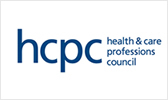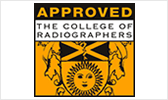Overview
Therapeutic radiographers are at the forefront of cancer care, having a vital role in the delivery of Radiotherapy services. They treat cancer patients with x-rays using highly sophisticated equipment. They are also responsible for ensuring that treatment planning and delivery is achieved with absolute precision.
In the treatment of cancer, accuracy is paramount and a variety of highly specialised equipment is available within Radiotherapy Departments to achieve this. Computerised Tomography (CT) simulators employ the latest technology to localise tumours.
Technological advances
Technological advances in linear accelerator design ensure that treatment conforms to patients needs with pinpoint accuracy. Treatment units housing radioactive sources also play a useful role in patient management, as do 3D planning systems.
London South Bank University has invested heavily to ensure that students have access to the best learning tools and staff. There are two dedicated fully equipped skill labs that enable Dosimetry (Radiotherapy treatment planning) and a state of the art virtual environment of a radiotherapy treatment room (VERT).
Communication and care
Alongside the technology, the importance of high standards of communication and care of cancer patients cannot be overestimated. Cancer patients are treated by a multidisciplinary team in which the therapeutic radiographer plays a major role in reducing the sense of vulnerability and promoting patients autonomy.
As a graduate, you'll be eligible to apply for registration with the Health and Care Professions Council (HCPC) as a Radiographer .
Top-up to MSc
By adding the research element of a dissertation (an extended and independent piece of written research), you'll be able to graduate with a Masters-level qualification.
Students on this course could be eligible to receive a non-repayable amount of up to £11,000 per academic year with the NHS Learning Support Fund.
| ModeMSc Full-time (Top Up) | Duration1 year | Start dateSeptember | Application code3927 | Application method Direct to LSBU |
Watch our video to see how you can make yourself at home studying at LSBU.
Location
London South Bank University student union is located at 103 Borough Rd, London SE1 0AA.
If you are visiting our Southwark Campus, you may wish to use our downloadable campus map (PNG File 466 KB). For information on accessibility, see our DisabledGo access guides. See our location page for more details.
Entry Level Requirements
Need further information? Call us on 0800 923 8888 to discuss entry requirements.
Completion of course #2324 PGDIP Therapeutic Radiography is eligible for the MSc top up course #3927
Choose your country
Select country here:
Missing English and Maths qualifications?
If you do not have the required English and Maths qualifications needed to satisfy the entry requirements for this programme, we have courses available at our partner College that you can take to upskill in these areas. Find out more at South Bank College.
United Kingdom
£3158
Tuition fees for home students
International
£6200
Tuition fees for international students
Tuition fees are subject to annual inflationary increases. Find out more about tuition fees for Undergraduate or Postgraduate courses.
-
Full-time
full-time
MSc Therapeutic Radiography (Top Up) (FT) - Year 1
UK fee: £3158 International fee: £6200 AOS/LSBU code: 3927 Session code: 1FS01
Possible fee changes
The University reserves the right to increase its fees in line with changes to legislation, regulation and any government guidance or decisions.
The fees for international students are reviewed annually and the University reserves the right to increase the tuition fees in line with the RPIX measure of inflation up to 4 per cent.
Scholarships
We offer several types of fee reduction through our scholarships and bursaries. Find the full list and other useful information on funding your studies on the scholarships and fee discounts page.
Fee status
Please check your fee status and whether you are considered a home, EU or international student for fee-paying purposes by reading the UKCISA regulations.
A student can change to writing up status for the purpose of a lower fee when the examination arrangements have been submitted and approved. Examination arrangements are submitted 3 months prior to submission of the thesis for examination. A student only has one year of writing up at the reduced fee that covers submission, viva, and minor corrections. The writing up fee 25/26 is £1,246
Home
| Mode MSc Full-time (Top Up) | Duration 1 year | Start date September | Application code 3927 | Application method Direct to LSBU |
This course is not open to international students.
Full details of how to do this are supplied on our How to apply webpage for postgraduate students
Three stages to your application
- Attend an Open Day if possible to find out more about the University and the course
- Apply via UCAS (despite being a postgraduate course, please select undergraduate study level on UCAS application)
- Prepare for your interview, including a Clinical Visit
Interviews
If your initial application is successful you will be invited to interview.
Read our interview page for important information about this stage and to help you prepare.
Clinical visit
We recommend that, before your interview, you visit a Radiotherapy department for at least half a day.
The programme comprises of a 60-credit dissertation module for the award of a Masters.
- Dissertation*
This module provides you with the opportunity to undertake original enquiry in a chosen area of professional practice. Here, you'll be able to consolidate and extend your knowledge and understanding of research and evaluation design and associated methods of enquiry. You'll be supported to develop the practical skills necessary to plan and carry out your chosen project. In the preparatory learning we'll address ethical and governance issues and processes relevant to your project.
*for the award of MSc top up only
Careers
Radiotherapy as a career
On successful completion of the course you'll be eligible to register with the Health and Care Professions Council (HCPC) as a therapeutic radiographer.
From helping plan and administering treatment, to explaining it to patients and assessing their responses, therapeutic radiographers are involved in every stage of the treatment process.
Therapeutic radiographers work closely with professionals from other disciplines, are involved in the care and support of the cancer patient and their families through all parts of the patient pathway from the initial referral through to treatment review and follow-up stages. They are predominantly responsible for treatment for the accurate localisation, planning and delivery of ionising radiation.
Therapeutic radiographers need excellent interpersonal skills and emotional resilience as they deal with patients and their families at very difficult and emotional times. Making patients feel comfortable and guiding them through the process can be as important as the technical skills required for this role.
Salary
Most therapeutic radiographers work for the NHS, where starting salaries are between £20,000 - £27,000. Depending on career progression, you could earn up to £65,000. (All About Careers)
Career progression
Through the acquisition of a wide range of transferable skills such as psychosocial, organisational, management, technical and scientific skills, individuals are well prepared to work in any situation that best suits their individual expertise and interest.Working as a consultant practitioner is one common career path as well as management, research, clinical work and teaching.
After qualification, clinically experienced therapeutic radiographers may gain additional specialist skills and expertise through the postgraduate, post-registration and continuing professional development frameworks. Find out more about professional development courses on offer through our online CPPD prospectus.
The programme is validated by the Health and Care Professions Council (HCPC) and accredited by the Society and College of Radiographers.

- The Health and Care Professions Council (HCPC) is the regulator of health, Psychological and Social professionals.

- The Society and College of Radiographers (SOR) is the professional body representing the radiography workforce.
Industry links
- Elekta - clinical solutions for treating cancer and brain disorders
- Vertual - the company providing the technology for our Virtual Radiography VERT Lab
- Varian - medical systems
Clinical partners
Teaching and Assessment
Academic theoretical knowledge is gained through taught session led by lecturers and experts in the field, supported by blended learning and self-study activities.
Types of learning activities include:
- Lectures
- Seminars
- Enquiry-based learning
- Tutorials
- Formative assessments
- E discussions
Personal tutoring
As a Health and Social Care student, you will be allocated a named tutor during your first three weeks at LSBU. The role of your tutor is to be your primary contact for academic and professional development support.
Your tutor will support you to get the most of your time at LSBU, providing advice and signposting to other sources of support in the University. They should be the first person at the university that you speak to if you are having any difficulties that are affecting your work. These could be academic, financial, health-related or another type of problem.
You will have appointments with your personal tutor once a year for up to 30 minutes throughout your course. You can contact your tutor for additional support by email.





